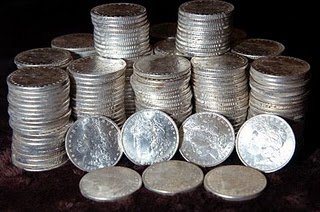בחקותי
Parsha Bechukotai
Wayyiqra (Leviticus) 26:3-27:34
‘If you walk in My laws and guard My commands, and shall do them, then I shall give you rain in its season, and the land shall yield its crops, and the trees of the field yield their fruit.– Wayyiqra (Leviticus) 26:3-4
This Torah Portion is entitled בחקותי Bechukotai which translates “in my statutes.” YaHuWaH promises if we keep his statutes and commandments that he will barak (“bless” or gift) us with many tangible earthly promises but also with promises that transcend this world. By keeping YaHuWaH’s statutes we are promised that the rain will fall, the trees and crops will yield their produce.
Wayyiqra (Leviticus) 26:5‘And your threshing shall last till the time of the grape harvest, and the grape harvest shall last till the time of sowing. And you shall eat your bread until you have enough, and shall dwell in your land safely.6 ‘And I shall give peace in the land, and you shall lie down and no one make you afraid. And I shall clear the land of evil beasts, and not let the sword go through your land.7‘And you shall pursue your enemies, and they shall fall by the sword before you. 8‘And five of you shall pursue a hun- dred, and a hundred of you pursue ten thousand. And your enemies shall fall bythe sword before you. 9 ‘And I shall turn to you and make you bear fruit, and shall increase you, and shall establish My covenant with you.10 ‘And you shall eat the old supply, and clear out the old because of the new.11 ‘And I shall set My Dwelling Place in your midst, and My being shall not reject you.12‘And I shall walk in your midst, and shall be your Elohim, and you shall be My people. 13 ‘I am YaHuWaH your Elohim, who broughtyou out of the land of Mitsrayim, from being their slaves. And I have broken the bars of your yoke and made you walk upright.
Commandments (Mitswot) can be divided into subcategories. The first category mentioned is Chukkim, which has been translated statutes. Chukkim are laws that are given to us without any obvious reason. They are laws/instructions that may defy human logic but are to be performed because the Creator decreed. Mishpatim are yet another subcategory, usually translated judgments. These are laws/instructions that have either obvious reasons for observation or YaHuWaH himself explained the reason. The final subcategory isEldot, which means witnesses. These are commands that are given for a reason yet they foreshadow or symbolically represent something more such as Shabbat, Passover etc. In this Torah Portion we are called to guard the Chukkim, from which Bechukotai (in my statutes) comes from. YaHuWaH is challenging us that we should trust him even when there is no obvious reason.
After the amazing promises YaHuWaH gives the tochachah (rebuke or punishment). These are very harsh punishments that detailed what would befall the people of Yashar’al (Yisrael) when they turn away from YaHuWaH
Wayyiqra (Leviticus) 26:14 ‘But if you do not obey Me, and do not do all these commands,15and if you reject My laws, or if your being loathes My right-rulings, so that you do not do all My commands, but break My covenant,16 I also do this to you: And I shall appoint sudden alarm over you, wasting disease and inflammation, destroying the eyes, and consuming the life. And you shall sow your seed in vain, for your enemies shall eat it.17‘And I shall set My face against you, and you shall be smitten before your enemies. And those who hate you shall rule over you, and you shall flee when no one pursues you.18‘And after all this, if you do not obey Me, then I shall punish you seven times more for your sins.19‘And I shall break the pride of your power, and shall make your heavens like iron and your earth like bronze.
YaHuWaH gives his rebuke for 30 consecutive verses. These verses outline prophetically the tragedies and calamities which befell his chosen people.
Wayyiqra (Leviticus) 26:27 ‘And if in spite of this, you do not obey Me, but walk contrary to Me,28then I shall walk contrary to you in wrath. And I Myself shall punish you seven times for your sins.29‘And you shall eat the flesh of your sons, and eat the flesh of your daughters.30‘And I shall destroy your high places, and cut down your sun-pillars, and put your carcasses on the carcasses of your idols. And My being shall loathe you.31 ‘And I shall turn your cities into ruins and lay your set-apart places waste, and not smell your sweet fragrances.32‘And I shall lay the land waste, and your enemies who dwell in it shall be astonished at it.33‘And I shall scatter you among the gentiles and draw out a sword after you. And your land shall be desert and your cities ruins,34 and the land enjoy its Sabbaths as long as it lies waste and you are in your enemies’ land. Then the land would rest and enjoy its Sabbaths.35 ‘As long as it lies waste it rests, for the time it did not rest on your Sabbaths when you dwelt in it.
To say the least these are among the most horrible of punishments. Of course those of us who know our Scriptures and history know that these events befell the people of YaHuWaH. In his wrath however, YaHuWaH always remembers compassion.
Wayyiqra (Leviticus) 26:40‘But if they confess their crookednessand the crookedness of their fathers, with their trespass in which they trespassed against Me, and that they also have walked contrary to Me,41 and that I also have walked contrary to them and have brought them into the land of their enemies – if their uncircumcised heart is then humbled, and they accept the punishment of their crookedness,42then I shall remember My covenant with Yaacob, and also My covenant with Yitshaq, and also remember My covenant with Abraham, and remember the land.43 ‘For the land was abandoned by them, and enjoying its Sabbaths while lying waste without them, and they were paying for their crookedness, because they reject- ed My right-rulings and because their being loathed My laws.44 ‘And yet for all this, when they are in the land of their enemies, I shall not reject them, nor shall I loathe them so as to destroy them and break My covenant with them. For I am YaHuWaH their Elohim.45‘Then I shall remember for their sake the covenant of the ancestors whom I brought out of the land of Mitsrayim before the eyes of the nations to be their Elohim. I am YaHuWaH.’ ”
Values
The final portion of Bechukotai decrees the laws of erachin (“values” or “appraisals”)–the manner by which to compute the charges of different types of pledges made to YaHuWaH.
If a person has vowed to give of his property to YaHUWaH, the Torah sets a fixed sum, based on the age and sex of the person who vowedm ranging from 3 to 50 shekels. This is seen to represent that person’s “value”. This amount is given by the one who made the pledge to the treasury of the Miqdash (Sanctuary).
If a clean (tahor) animal is pledged to YaHuWaH, it is brought as an offering in the Miqdash (Sanctuary). “He shall not exchange it for another, be it for better or worst. If he shall at all exchange beast for beast, then it and its substitute shall both be qodesh (Set Apart) to YaHuWaH.
Tamei (unclean) animals and other such objects are given to the Miqdash treasury to be sold, or redeemed for their assessed market value plus twenty percent is added.
A field goes to the treasury until the Yobel (Jubilee) year. At that time it goes to the Kohen (priest). A person wishing to redeem his pledged field is not assessed according to the field’s market value, but by the Torah’s own criteria. An area equivalent to slightly less than four acres called beit chomer is worth 50 shekels. This amount is to be deducted in harmony with how many years remain until the Jubilee year
Wayyiqra (Leviticus) 27:34 These are the commands a which YaHuWaH commanded Mushah for the children of Yashar’al (Yisrael) on Mount Sinai.
This concludes our study of Wayyiqra (Leviticus). May we trust YaHuWaH in all that he says so that enjoy showers of berikoth (blessings) from on high and not the curses of death. Obedience to YaHuWaH is life, but disobedience leads to moth w moth meaning death and death also known as the second death.




